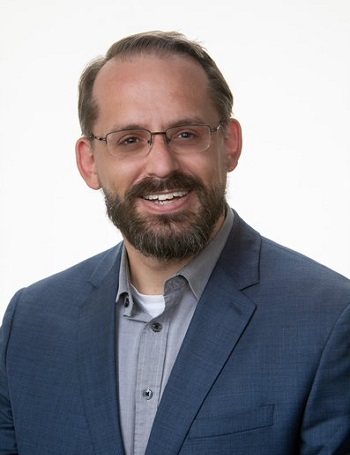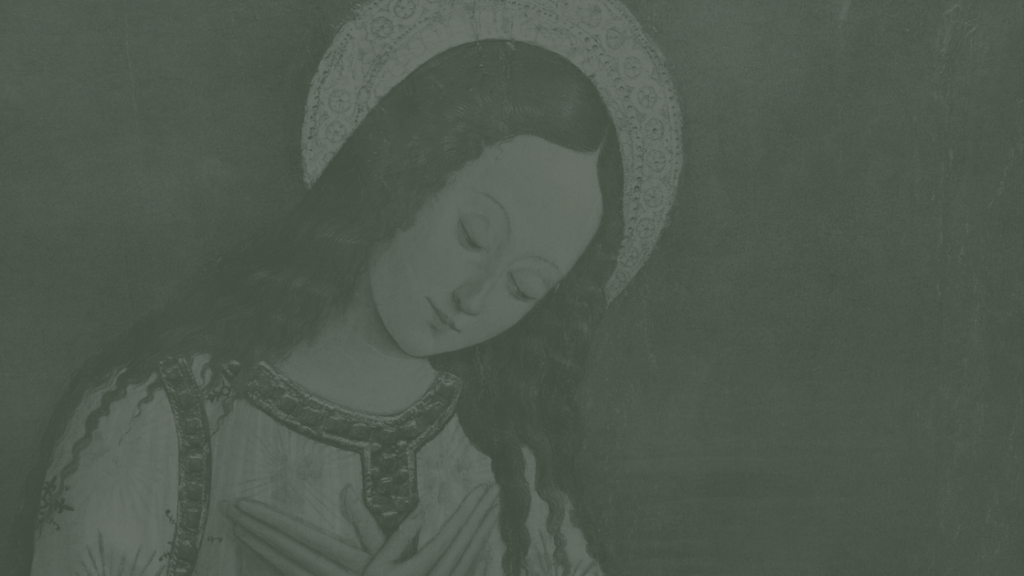BibleMesh is guided by three pillars: the Great Commandment, the Great Commission, and the Great Tradition. Tim Bertolet is a Research Fellow with the BibleMesh Institute.
In a previous post, we looked at the importance of Chalcedon for its articulation of the union of the two natures in Jesus Christ. At Christmas, the Son of God became man and was born of the woman. The Definition of Chalcedon helps avoid misinterpretations of the Biblical text by summarizing the whole of the Bible on this issue. It is also a response to misunderstandings and wrong interpretation of the biblical picture that had arisen in the first four hundred years of Christianity.
In this post, we want to focus on this line in the Definition: “the same one was born of the Virgin Mary, the bearer of God, according to his humanity.” The words “bearer of God” is the Greek word “theotokos.” It is sometimes translated as “Mother of God.” Protestant evangelicals are skeptical of confessing “Mother of God,” or “theotokos.” But if we rightly understand what the phrase means and why it is important, we should have no problem rejoicing in what Mary is doing as the mother of Jesus. Jesus is the eternal Son of God in the flesh.
Mary the God-Bearer
First, to say that Mary is “the mother of God” or “the bearer of God” does not mean that Mary is divine, that the Son of God comes into existence in her womb, or that there is some kind of sexual union between Mary and God to produce the Son. All of these options are blasphemous and heretical. They are not the biblical picture of what is going on.
The Bible teaches that Mary was a virgin, and Jesus’s taking up human flesh in her womb is the result of the Holy Spirit:
Luke 1:34 And Mary said to the angel, “How will this be, since I am a virgin?”
Luke 1:35 And the angel answered her, “The Holy Spirit will come upon you, and the power of the Most High will overshadow you; therefore the child to be born will be called holy—the Son of God.
When we let Scripture interpret Scripture, we find that the Son has existed as God for all eternity and that a particular point in time he became human without ceasing to be God:
Heb. 1:3 He [the Son] is the radiance of the glory of God and the exact imprint of his nature, and he upholds the universe by the word of his power. After making purification for sins, he sat down at the right hand of the Majesty on high,
John 1:1 In the beginning was the Word, and the Word was with God, and the Word was God.
John 1:14 And the Word became flesh and dwelt among us, and we have seen his glory, glory as of the only Son from the Father, full of grace and truth.
While the person of the Son existed before he took up residence in the womb, we confess Mary as “God bearer” because in the Son, God really did come down in the flesh, take up residence in the womb, and was truly born. She was carrying God in the flesh in her womb.
But when we see Jesus, we recognize that he is God in the flesh. Colossians 2:9 tells us “For in him the whole fullness of deity dwells bodily.” This body came into existence in the womb of Mary. The creed is clear that she is “the bearer of God, according to his humanity.” The finite cannot contain the infinite. But the infinite one takes up residence in full humanity and enters the world through the womb of Mary.
The person in Mary’s womb is the Son of God. The person of the Son is there not just some sort of inanimate human nature. There is a real union between God and flesh in the womb of Mary. The baby she holds is both her child and the Son of God. She is holding God in the flesh. The eternal Son of God really is born through the human womb of this woman.
Theotokos is a Confession of Christ’s Full Divinity and Humanity
When we confess that Mary is the “Mother of God,” we are not making a statement about Mary so much as a statement about the one who was born. Although we don’t exalt Mary to the level later Roman Catholicism does, Mary is certainly favored by God and it is a massive privilege of divine grace to be the one through whom he comes into the world (Luke 1:28–30). But in calling Mary “the Mother of God” we are saying something about the true nature of the incarnation.
Jesus says, “Whoever has seen me has seen the Father” (John 14:9). He is identifying himself with God. He is the “I am” (John 8:58; 18:5,6,8; cf. Exodus 3:14; Isa. 41:4; 43:25; 48:12; et al). He declares himself equal with God (John 5:18). We, like Thomas look at Jesus can confess “My Lord and my God” (John 20:28).
During his gestation in the womb, the human fetus being knit together in the womb of Mary is ever and always truly God. God really is residing there. This baby grows as a human in the womb just as the rest of his earthly life he grows. But at each stage of his human growth, he continues to be the unchanging and eternal God. In this way, by carrying him according to his human nature she is carrying God the Son.
When we confess that Mary is the Mother of God, we are celebrating the mystery of the incarnation. Even when we don’t use the words “Mother of God,” we sing about this in our many Christmas carols.
Consider some examples:
- “Christ, the everlasting lord Late in time behold Him come, Off-spring of a Virgin’s womb; Veiled in flesh the Godhead see, Hail, the incarnate deity”
- “Shepherds in the fields abiding, Watching o’er your flocks by night, God with man is now residing, Yonder shines the infant Light.”
- Infant holy, infant lowly, for his bed a cattle stall; Oxen lowing, little knowing, Christ the babe is Lord of all.
- Yea Lord, we great thee, born this happy morning, Jesus to Thee be all glory giv’n; Word of the Father, now in flesh appearing.
As the Christmas season comes, we hope that you have a wonderful and rich celebration. Jesus Christ was born of the virgin! He is God in the flesh. He came to earth and became one of us so that we could be saved. God had mercy on us and sent his Son to save people!
For further reading:
- Should Evangelicals Call Mary the “Mother of God”? – Credo Magazine.
- Review: ‘On the Unity of Christ’ by Cyril of Alexandria – The Gospel Coalition.

Tim Bertolet
Timothy Bertolet currently serves with the missionary sending agency ABWE International, located in Harrisburg, PA. He has also served as youth, and then a senior pastor at two different churches, and earned a PhD in New Testament Studies from the University of Pretoria.
